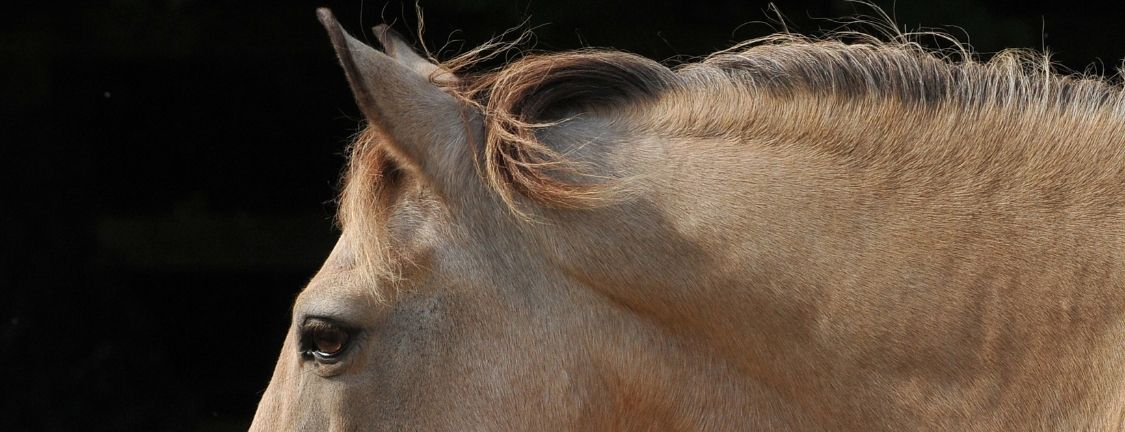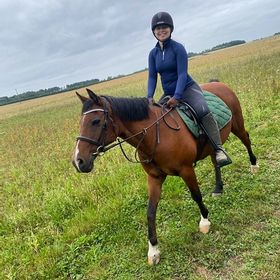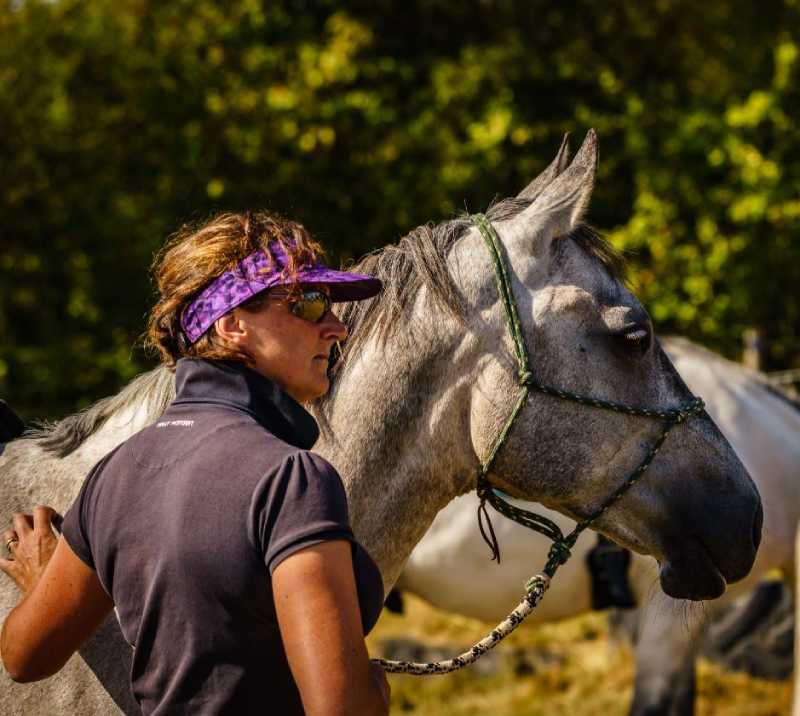
Clare MacLeod is a Registered Equine Nutritionist who provides unbiased, independent peace of mind with nutrition solutions for owners who want the very best for their horses. She provides bespoke consultancy and runs a regularly updated extensive library of nutrition information at the Equine Nutrition Learning Centre. We asked Clare to give us her advice when it comes to feeding a veteran horse in light work.
Here are my top tips for feeding the veteran horse:
Feed the Individual
It’s easy to get drawn into rules or fashions for feeding older horses and ponies, but feed the individual, not their age. Horses and ponies grow old at different rates, so their nutritional needs vary. Feeding a 22-year-old pony who’s showing few signs of ageing may see him get too fat.
Light work requirements
Many older horses and ponies need no extra feed on top of good forage. Follow good feeding guidelines – only add a concentrate if the forage cannot supply enough energy and protein. If he does need extra, use a balancer, or if that’s not enough, a good quality compound feed.
Struggling to maintain weight?
As horses and ponies age, their teeth wear out, becoming smoother, looser, and they may eventually fall out. Even with regular checks and with all the teeth still present, chewing may not be efficient. The result is a reduced ability to eat and a loss of weight, especially in winter. These horses and ponies need forage replacers (see the table below).
Extra help and support:
Use the table below to assess additional requirements:
| Age-related issue | Supplement/feed | Consider also... |
| Stiff, reduced mobility | Joint supplement e.g. glucosamine, chondroitin, MSM, herbs (Boswelia, devil's claw) | Movement and strengthening exercisess are more important than supplements |
| Muscle wastage (sarcopenia) | Increase diet quality; add a protein-rich balancer e.g. stud balancer | Appropriate exercise plan |
| Poor immunity/infections/high worm counts | Elevated vitamins and minerals; include vitamin C | Rude out PPID (Cushing's) |
| Chewing issues/ quidding/tendency for diarrhoea |
Ground fibre forage replacers e.g. soaked forage or compound nuts or mash/unmolassed beet pulp Digestive aid including live yeast & psyllium husks |
Regular dental checks and feed plenty! (some need kilos of soaked mash daily if chewing is affected) |
| Failure to thrive/weight loss | As above; balancer + soaked forage replacers; oil-rich supplements such as cooked linseed | Veterinary check to rule out pathology (Disease) |
Product review - Mastacare Glucosamine Supplement:
On our Facebook page recently we asked for people to test our Glucosamine horse supplement, here is Natalie's review:
Glucosamine 5000 Review
I have been product testing the MastaCare Glucosamine 5000 with Harry Hall for 3 weeks and considering the time frame I am so impressed!
I use supplements often as my pony is 23 now and he starts to show his age often; clicky joints, stiff legs, tired and quite slow. Since adding as little as 30g into a feed daily it has really perked him up! I feed him twice a day and still have so much product left after 3 weeks!!
He moves freely, no clicking when he gets up, he’s willing to do more work and is loving being able to canter without wanting to stop. He’s started cantering to the gate when coming to call and his field mate is loving having his friend back.
I was worried that it would be strong for taste and he would avoid eating it as he’s very good at sniffing out medicine and other supplements, but he gobbles these feeds like they’re his last meal as he can’t taste the powder within the chaff.
I’ve even had people at the yard tell me they love watching him run on a morning in the sun which he rarely does anymore. I’m so pleased with the results in such a short period of time and would recommend it to anyone who has a golden oldie or a horse that just needs a little bit of comfortable help!
Will definitely be buying more from Harry Hall in the future!

About Clare
Clare has been fascinated by horses since she took her first steps, and her love for these magnificent animals has never waned. She has always been passionate about learning and after enjoying academic work at school, realised she would follow a career in horse-related science. “I feel so privileged to be able to work doing what I love” she explains. “I grew up questioning everything (thank you to my very patient parents) so I loved the rigour of science. Whilst good science throws up more questions than answers, it gives us the backbone to help make decisions about our horse care that will help, not hinder”. "I’m passionate about ensuring horse owners have an unbiased and truthful source of information.”
Clare has her own horses, which as well as an essential learning tool, have allowed her to understand fully what owners are going through when they have nutrition or health challenges with their horses.

The Equine Nutrition Learning Centre (ENLC)
Clare has a passion for translating technical and scientific information into useful practical strategies for horse owners. The ENLC was developed in Clare’s quest to answer the mounting number of questions she received.
The ENLC is a special resource of quality nutrition and health information, available through membership which also gives direct access to a community that is a safe place for chat, discussion and support. Find out more at https://equinenutritionist.com/
ENLC Members get peace of mind plus...
- Instant answers
- Nutrition solutions
- Quality, honest information which is unbiased and impartial
- Regular new content
- Affordable, lifelong learning
- No adverts
- Private Facebook Community - the Equine Nutrition Learning Centre Hub
- Cancel any time
- All for just £9 per month
